For students at bachelor level we offer the following projects, courses and schools, and exchange programs:
G-Chaser (apply for the Master Project!)
 This is a unique opportunity to have your own master project on a NASA rocket!!!
This is a unique opportunity to have your own master project on a NASA rocket!!!
We are recruiting two talented and highly motivated bachelor students to do a rocket thesis. You need to be in your last year of bachelor to apply. You will take part in all aspects of a rocket mission; from building and preparing a scientific instrument, through testing and intergration of the instrument on the rocket, to the actual launch and post flight data analysis. The G-Chaser student rocket will be launced from Andøya Space Center in January 2019 as part of the Grand Challenge Initiative (GCI). For more information on the GCI and the G-Chaser student rocket visit: http://www.grandchallenge.no
More information on how to apply here.
Celebrating Kristian Birkeland - Build your own Terella
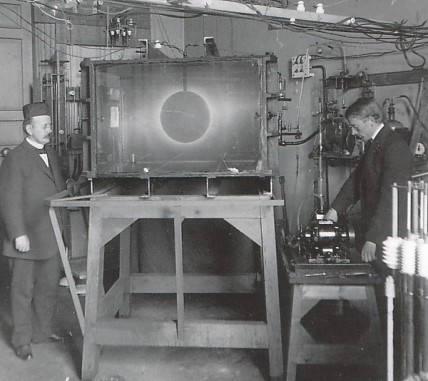 This year is 150 years since the pioneer of space research, Kristian Birkeland was born. In his famous Terella experiment he managed to create the miniaturised Northern Lights. Now you have a possibility of following his footsteps and build your own - student terrella experiment at 4DSpace. Stay tuned, more info on how to become a part of this project will come soon!
This year is 150 years since the pioneer of space research, Kristian Birkeland was born. In his famous Terella experiment he managed to create the miniaturised Northern Lights. Now you have a possibility of following his footsteps and build your own - student terrella experiment at 4DSpace. Stay tuned, more info on how to become a part of this project will come soon!
CaNoRock Space Technology/Romteknologi course (5 ECTS)
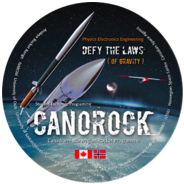 Every year several students have an opportunity to take part in the intensive course at Andøya Space Center and participate in building instruments for a student rocket. The course is finalised by launching the student rocket, where students are leading the operations during the launch. The course is open primarily for FAM and ELDAT students who wish to work towards instrumentation. The time of the course varies from year to year, and the prospective students will receive an information about the course in advance. However, you are also encouraged to visit the course website. During the course you will work together with students from Canada and other Norwegian universities. CaNoRock is a real boost for your career. Many of former students are now working in space industry and research in various countries.
Every year several students have an opportunity to take part in the intensive course at Andøya Space Center and participate in building instruments for a student rocket. The course is finalised by launching the student rocket, where students are leading the operations during the launch. The course is open primarily for FAM and ELDAT students who wish to work towards instrumentation. The time of the course varies from year to year, and the prospective students will receive an information about the course in advance. However, you are also encouraged to visit the course website. During the course you will work together with students from Canada and other Norwegian universities. CaNoRock is a real boost for your career. Many of former students are now working in space industry and research in various countries.
You can read about the campaign CaNoRock XIII here.
Space Weather Summer School
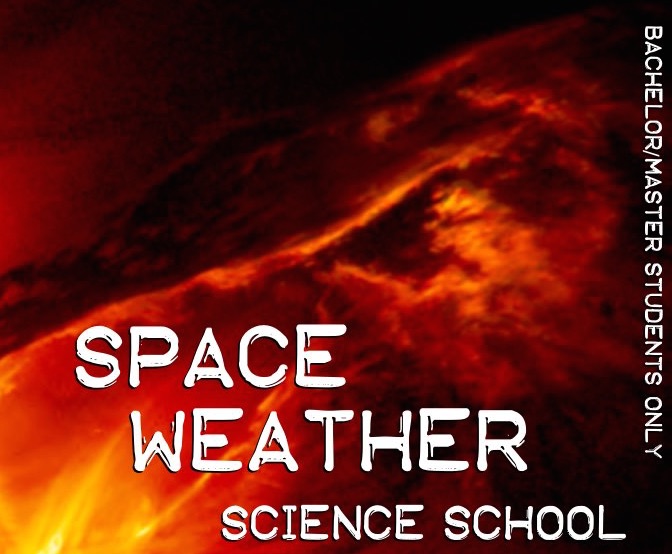 This school is organised every summer for students on bachelor and master levels, and it is a MUST for those who are seriously considering becoming experts in data analysis of space weather phenomena and doing in future their thesis on those topics. Space weather describes the space environment between the sun and Earth and has impact on the Earth's near space. One of the space weather events are the northern lights, but there is much more than that: space weather can influence our technology on the Earth and in space. The teachers and students are from USA, Japan and Norway. The school is organised in one of these three countries.
This school is organised every summer for students on bachelor and master levels, and it is a MUST for those who are seriously considering becoming experts in data analysis of space weather phenomena and doing in future their thesis on those topics. Space weather describes the space environment between the sun and Earth and has impact on the Earth's near space. One of the space weather events are the northern lights, but there is much more than that: space weather can influence our technology on the Earth and in space. The teachers and students are from USA, Japan and Norway. The school is organised in one of these three countries.
You can read more about the school and how to apply here.
ASTRA Arctic Space TRAining (Russia, Norway)
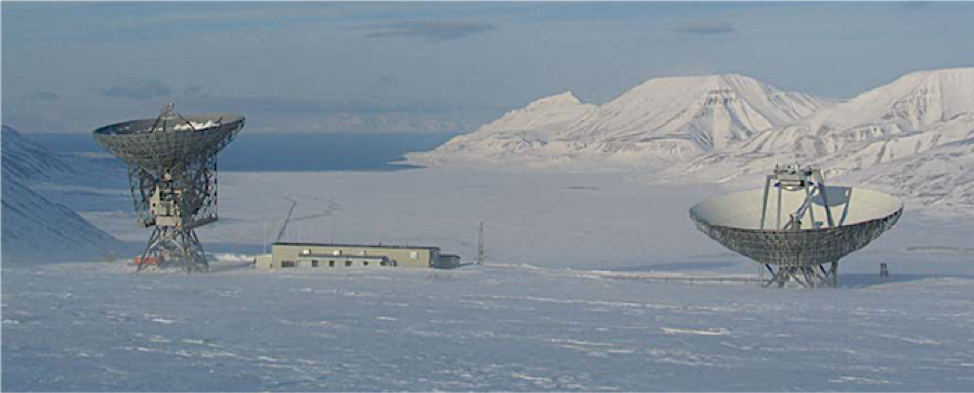 The educational Arctic Space TRAining (ASTRA) platform offers a research-based student training in space science, focusing on the Norwegian and Russian Arctic regions. It provides hands-on education with various research facilities and instruments across the border including satellites, rockets, and ground-based instruments (magnetometer networks, EISCAT, SuperDARN, and optical instruments for the studies of the northern lights). We organise summer and winter schools in Russia and Norway, offer scholarships for student mobility, and joined thesis supervision. You can find more information on how to apply here.
The educational Arctic Space TRAining (ASTRA) platform offers a research-based student training in space science, focusing on the Norwegian and Russian Arctic regions. It provides hands-on education with various research facilities and instruments across the border including satellites, rockets, and ground-based instruments (magnetometer networks, EISCAT, SuperDARN, and optical instruments for the studies of the northern lights). We organise summer and winter schools in Russia and Norway, offer scholarships for student mobility, and joined thesis supervision. You can find more information on how to apply here.
4DSpace Numerical Workshop (Japan, Norway)
 Twice a year we organise workshops for students interested in space simulations. The workshops are joint intensive study programs where students will learn different aspects of numerical simulations with particle-in-cell codes, running experiments on supercomputers, and basics of space science.
Twice a year we organise workshops for students interested in space simulations. The workshops are joint intensive study programs where students will learn different aspects of numerical simulations with particle-in-cell codes, running experiments on supercomputers, and basics of space science.
If you are bachelor student in your last year, or a master student, you can apply!
You can see photos from previous workshops here.
FYS3610 - Space Physics (10 ECTS)
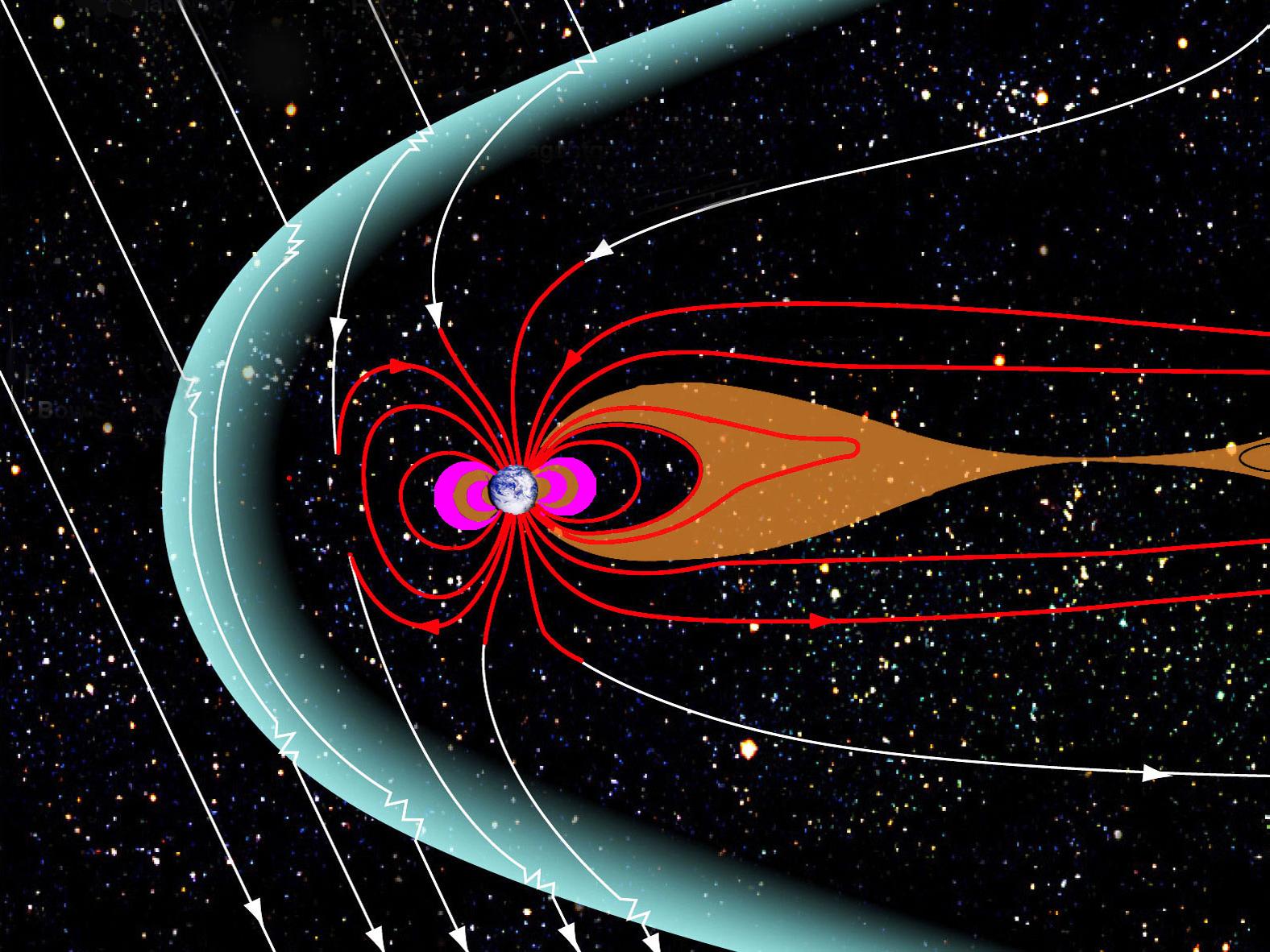 Every fall semester you can take the course Space Physics / Romfysikk. The course is concerned with the Earth's atmosphere, magnetic fields and Aurora, and discusses the effects of the Sun and the solar wind. It will give a very good introduction to all aspects of space science. The course will also include a summary of space and ground based instruments for measurements of phenomena in the plasma environment of the Earth. By the word "plasma" we understand a mixture of free ions and electrons, or charged particle in general. It turns out that about 99 % of the universe is in the plasma state, implying that understanding of the this so called "fourth state of matter" is of fundamental importance, in particular also for astrophysics. Read more on the course website.
Every fall semester you can take the course Space Physics / Romfysikk. The course is concerned with the Earth's atmosphere, magnetic fields and Aurora, and discusses the effects of the Sun and the solar wind. It will give a very good introduction to all aspects of space science. The course will also include a summary of space and ground based instruments for measurements of phenomena in the plasma environment of the Earth. By the word "plasma" we understand a mixture of free ions and electrons, or charged particle in general. It turns out that about 99 % of the universe is in the plasma state, implying that understanding of the this so called "fourth state of matter" is of fundamental importance, in particular also for astrophysics. Read more on the course website.
AGF210 Middle Polar Atmosphere (15 ECTS)
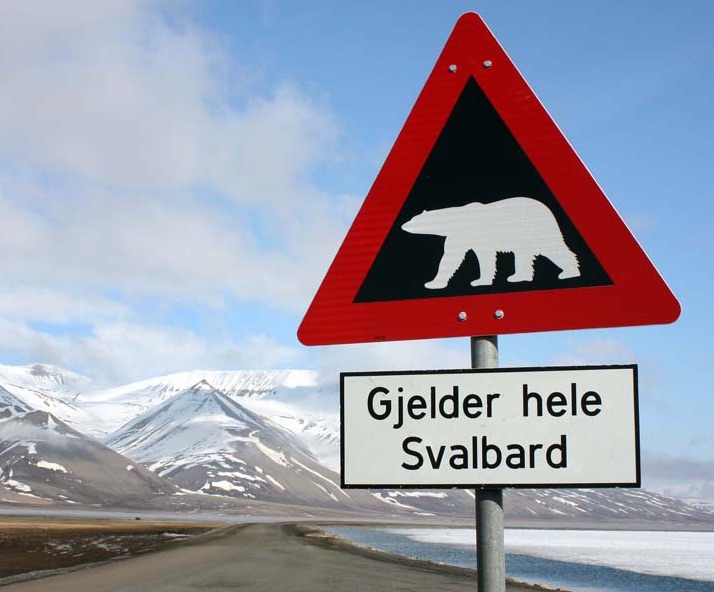 As a bachelor student you can spend one semester on Svalbard! While being in this exotic place on the top of the world, you can study the space and atmospheric physics at UNIS. On Svalbard we have access to unique infrastructure for space research, including auroral observatory, EISCAT and SuperDARN radars.
As a bachelor student you can spend one semester on Svalbard! While being in this exotic place on the top of the world, you can study the space and atmospheric physics at UNIS. On Svalbard we have access to unique infrastructure for space research, including auroral observatory, EISCAT and SuperDARN radars.
The course AGF210 is given in the fall semester, and focuses on the stratosphere and mesosphere in the polar regions. These include radiation, chemistry, dynamics and circulation, particle precipitation, aerosol physics and wave activity in the middle atmosphere. The fieldwork at the Kjell Henriksen Observatory (KHO) will be connected to airglow observations. Radar and lidar measurement techniques will be introduced during visits to Andøya Space Center (ASC) and radar sites nearby Longyearbyen.
Remember to apply well in advance, and do not hesitate to contact us if you have any questions. Deadline for applications 15. February.
Read more on the course website.
AGF213 Polar Meteorology and Climate (15 ECTS)
 As a bachelor student you can spend one semester on Svalbard! While being in this exotic place on the top of the world, you can study the space and atmospheric physics at UNIS. On Svalbard we have access to unique infrastructure for space research, including auroral observatory, EISCAT and SuperDARN radars.
As a bachelor student you can spend one semester on Svalbard! While being in this exotic place on the top of the world, you can study the space and atmospheric physics at UNIS. On Svalbard we have access to unique infrastructure for space research, including auroral observatory, EISCAT and SuperDARN radars.
The course AGF213 is given in the fall semester, and covers variety of themes important for the weather and climate in polar areas: small and local scale meteorology; boundary layer meteorology; turbulence; local wind phenomena such as katabatic and mountain winds; etc.
Remember to apply well in advance, and do not hesitate to contact us if you have any questions. Deadline for applications 15. February.
Read more on the course website.
Satellite Systems and Space Instrumentation (10/15 ECTS)
 We are planning to start a new course at UNIS that will combine space physics and technology. The course is foreseen to start in summer 2018. There will be active experiments and a mission design. Stay tuned for more details.
We are planning to start a new course at UNIS that will combine space physics and technology. The course is foreseen to start in summer 2018. There will be active experiments and a mission design. Stay tuned for more details.
CaNoRock - Student exchange with Canada
 As bachelor and master students you have the opportunity to take one or two semesters abroad. We encourage you to travel to Canada to one of the following universities: University of Calgary, University of Alberta, or University of Saskatchewan - with these universities we have a special agreement. There you can take courses that are pre-approved, which means that you do not need to worry about getting them approved after you come back. You just go there, take the course, and it will be automatically approved for your degree in Norway. What is also important, we will assist you during your stay in Canada. With these three universities, we have close collaboration within research and education in space science. This means that while being there you will be able to already start working on your space science projects under joined supervision and get the unique experience!
As bachelor and master students you have the opportunity to take one or two semesters abroad. We encourage you to travel to Canada to one of the following universities: University of Calgary, University of Alberta, or University of Saskatchewan - with these universities we have a special agreement. There you can take courses that are pre-approved, which means that you do not need to worry about getting them approved after you come back. You just go there, take the course, and it will be automatically approved for your degree in Norway. What is also important, we will assist you during your stay in Canada. With these three universities, we have close collaboration within research and education in space science. This means that while being there you will be able to already start working on your space science projects under joined supervision and get the unique experience!
Do not forget to apply for the study exchange! The deadlines are usually 15 February for the travel in fall semester and 15 September for the spring semester.
Do not hesitate to contact us for more details, and we can tell you all practicalities related to this stay abroad.
Read more on the CaNoRock student exchange website.
Other opportunities
 Many other student possibilities are available both in Norway and abroad. Under this link we provide an overview of various education programs.
Many other student possibilities are available both in Norway and abroad. Under this link we provide an overview of various education programs.